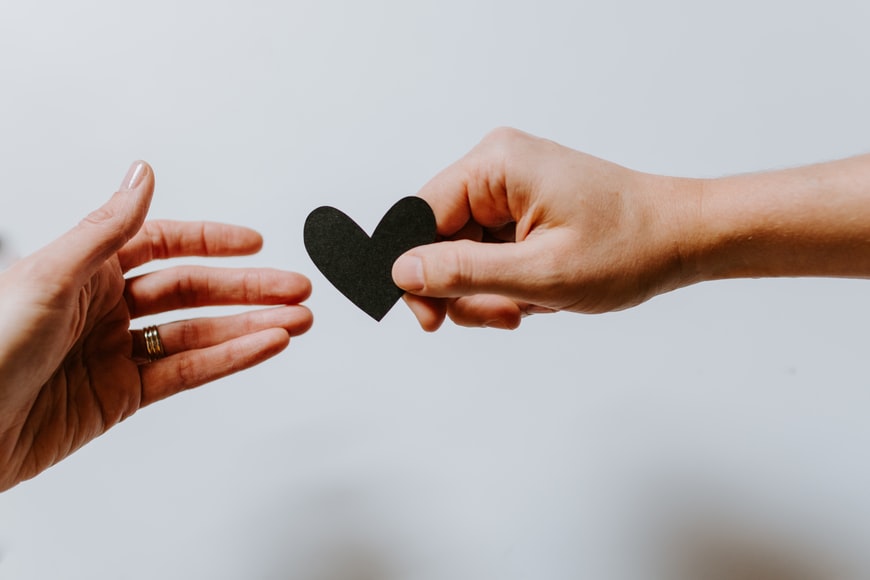Have you ever heard of the fight or flight response? This happens when you go through something traumatic or something stressful in your life. Your body seems to react differently when this “certain” event happens -your heart pounds so fast, you can almost hear it come out of your chest; your blood pressure seems to rise, your cheeks turn red; your muscle tightens, it looks and feels like your stronger or faster. But when the traumatic or stressful situation has passed, everything just seems to go back on track.
Imagine everything mentioned above minus getting back to your normal senses. Yup, this is how PTSD or posttraumatic stress disorder is different from what was just mentioned. Even after the traumatic or stressful situation is over, your body seems stuck or unable to go back to your normal, usual self. Visualize all that is happening to you. then ask yourself: how do you release yourself from all these?

What Is PTSD?
PTSD or posttraumatic stress disorder is a psychiatric condition that happens to you if you have seen or experienced a traumatic event like a natural disaster, a grave accident, an extremist act, war, coup de ‘tat, or get sexually abused or threatened with death, violence, or serious injury.
You will have disturbing and intense thoughts or feelings associated with your experience that stay with you even after the traumatic situation has ended. You may live through the trauma again through nightmares or flashbacks; you will have negative feelings that may cause you to feel detached or estranged towards others. If you have PTSD or you’re a PTSD survivor, chances are, you are or had been avoiding people or situations that might remind you of the trauma you just went through. A negative reaction towards the most menial of things can happen at any time, like a certain sound, a random item, or even an accidental touch.
You could be diagnosed with PTSD if you were exposed directly or indirectly to a certain traumatic situation. For example, you learned about sexual abuse happening to a family member or a very close friend. Or a result of repetitive exposure to explicit details of trauma like child abuse cases.

What Are The Symptoms Of PTSD?
Posttraumatic stress disorder symptoms usually start within a month where the traumatic event happened. However, there are times when the symptoms do not appear until a few years. These symptoms interfere with your capabilities to do your normal daily tasks; cause serious problems with your relationships at home, work, and or school.
These symptoms are grouped into four, namely: avoidance, changes in physical and emotional reaction, intrusive memories, and negative changes in mood and thinking. Like in most cases, symptoms differ from person to person, over time.
1. Avoidance
- You avoid or try to avoid talking or even thinking about the traumatic event
- You avoid people, places, or activities that remind you about the traumatic event
2. Changes in physical and emotional reactions
- You frighten easily; so, you’re always on the lookout for danger
- You start self-destructive behaviors like excessive drinking
- You have trouble sleeping and concentrating
- You are irritable, angry, or aggressive
- You are overwhelmed with guilt or shame
Signs and symptoms for children 6 and below include:
- Reliving the traumatic event or parts of it through play
- Keeps having nightmares—could be about the traumatic event or not
3. Intrusive memories
- You have recurring and unwanted upsetting recollections of the traumatic event
- You are reliving the trauma, or you are having flashbacks
- Your dreams upset you, or you have nightmares
- You experience serious distress and physical reaction to anything that reminds you of the trauma
4. Negative changes in thinking and mood
- You suddenly have negative thoughts about yourself and others; therefore, being detached from them and have a hard time sustaining the relationships you have with them
- You feel hopeless and numb of anything positive in your life
- You seem to have a problem remembering things-even the traumatic event
- Lack of interest in activities you once enjoyed
How To Manage PTSD?
Managing PTSD and becoming a PTSD survivor requires hard work. Like most things with healing, the process happens gradually. Managing and healing from your demons do not happen overnight and might not even disappear completely.
There are many ways for you to manage your post-traumatic stress disorder and cope with the lingering symptoms, and reduce whatever anxiety and fear you have.
1. Challenge yourself. Turn all your negative emotions into something positive! Maybe you can start learning a new hobby or just start by challenging yourself to get out of bed every day to do something you usually did before your PTSD.
2. Start moving. Get your body moving again; because your nervous system is technically at a standstill, getting some exercise in can release endorphins or the “happy hormone” and could maybe improve your mood.
3. Ask for help. There is no shame in asking. Getting PTSD treatment will be the beginning of your healing. Yes, you have physically and emotionally withdrawn from other people, but when you begin to reach out to someone for help, especially from people who truly care about you, your recovery is on its way!
4. Posttraumatic stress disorder therapy paired with a healthy lifestyle. Eat a nutritious diet, sleep, avoid alcohol and drugs, and even give yourself the chance to meditate or even get a massage. Choosing you in this entire process is essential in overcoming PTSD and making the journey fulfilling.

How To Overcome PTSD?
The first step is usually the hardest, but if you or a loved one has PTSD, you have to be brave and ask for help right away. PTSD is easier to overcome if it is treated sooner. You are not weak for admitting that you have PTSD. Confronting the fact that you have one is brave. Not only are you taking charge of what happened to you, but you are giving yourself a chance to choose what direction you want to go when it comes to your trauma.
Roots Through Recovery will be your guide and support throughout your journey. We can help you get depression and anxiety treatment, PTSD therapy, and so much more. We will help you emerge into a better, and stronger person in the end.
Avoiding your trauma is a natural response but disregarding that it exists will just make it worse for you and your PTSD. It will continually hurt your relationships and your capacity to function, and it will hurt your chances of a better quality of life.
Here at Roots Through Recovery, we want each one of you to become a PTSD survivor. We have therapists who are more than just their credentials and their experience. We will make sure that you feel safe and comfortable with anyone you choose. We want to make sure that your therapy will work.
Take the first step right now! Our teams are ready for you! You can call us anytime at 562-304-9592 or just come and see us at 3939 Atlantic Ave, Suite 102 Long Beach, CA 90807.




